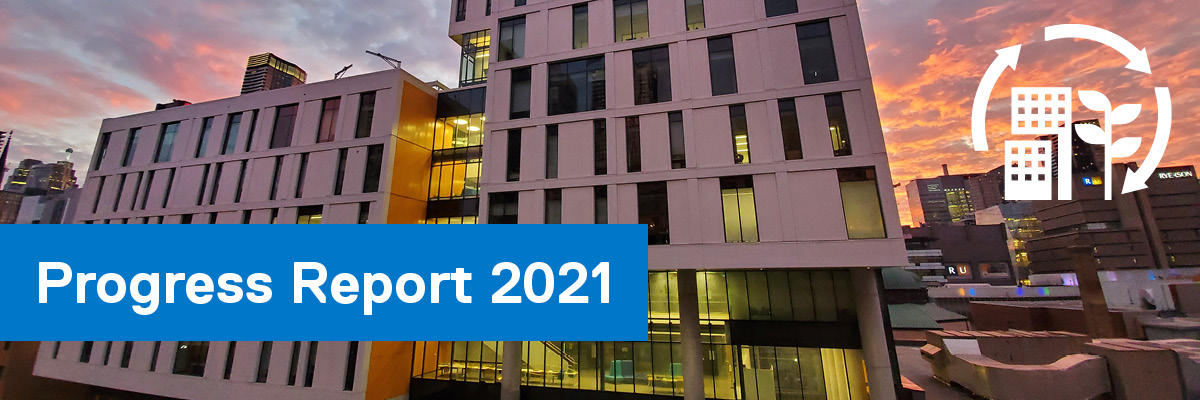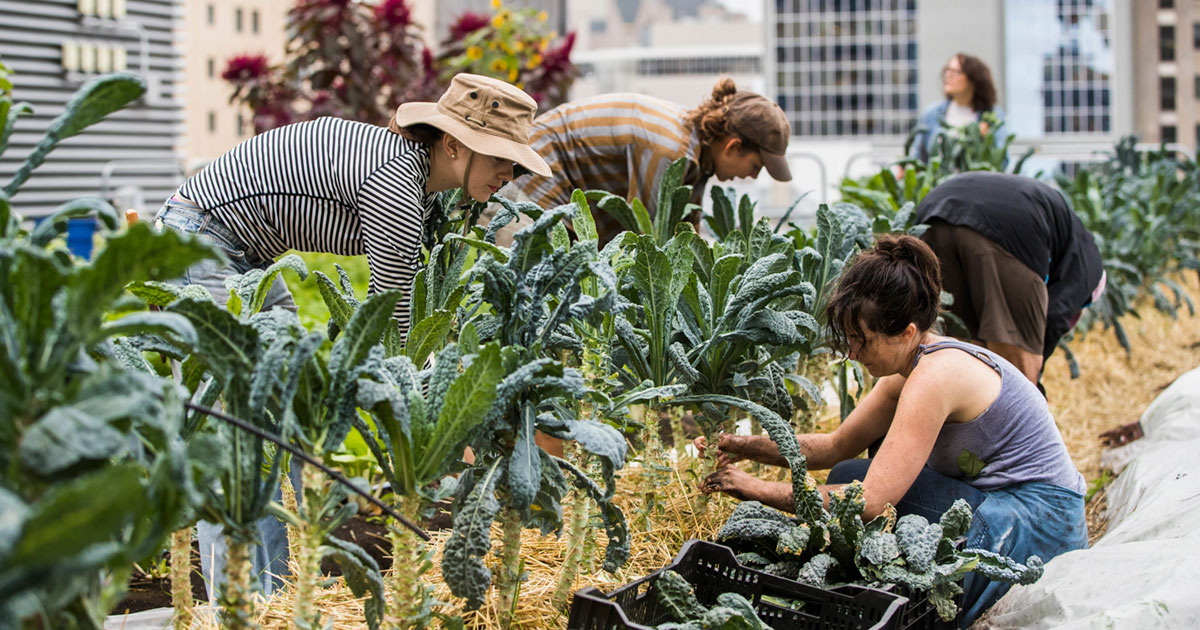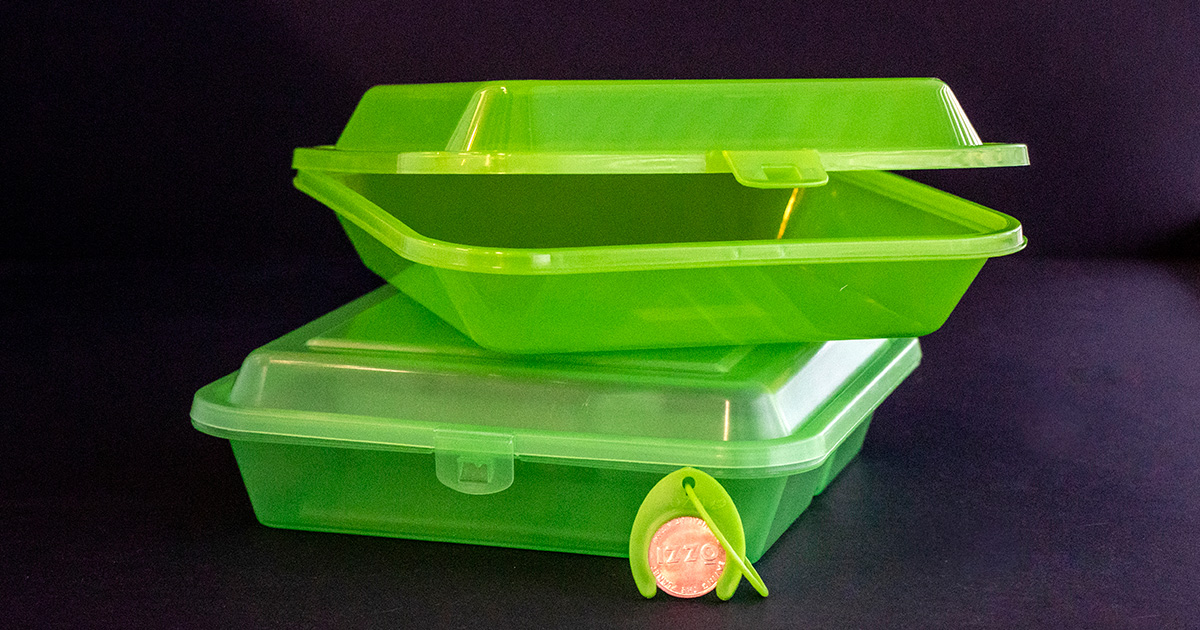Sustainable Food

TMU is proud to support local, sustainable and fresh food in our cafés and hospitality services and are committed to continually developing a sustainable food culture at the university. TMU Eats and the Urban Farm at TMU are proactively working to ensure the university is moving towards a sustainable food system.
In 2020, 75% of food grown by the Urban Farm at TMU was donated to emergency food relief organizations in and around the TMU community.
In 2020/2021, 150,000 single use containers were avoided through the OZZI reusable container program.

The Urban Farm at TMU
In 2020, the Urban Farm at TMU had a much different growing season to align with Toronto Public Health guidelines and TMU's response to COVID-19. The Urban Farm worked with Environmental Health and Safety to establish safety protocols and restructure the crop plan to grow low-maintenance, nutrient-dense storage crops. 75% of food grown was donated to emergency food relief organizations in and around the TMU community.
New initiatives in 2020/2021 (on hold due to COVID-19):
- The Indigenous Foodways project is a medicine garden plot on the George Vari Engineering and Computing Centre (ENG) rooftop farm that will grow traditional plants and medicines, such as the Three Sisters, using Indigenous perspectives on growing methods and practices.
- The Black Food Sovereignty initiative aims to engage Black students on campus through sharing of food from farming to eating, focusing on culturally significant crops, growing techniques and providing nutrition education and cooking skills through virtual workshops.

TMU Eats
TMU Eats launched the OZZI reusable to-go container program to reduce waste and single use food packaging on campus by encouraging students, faculty and staff to forgo disposable containers for a more sustainable and environmentally-conscious takeout option in the Hub Café (pre-COVID-19) and the Pitman Hall (PIT) dining hall (post COVID-19). Each reusable to-go container is 100% recyclable and can be used up to 300 times. During the 2020/2021 academic year, approximately 150,000 single use takeout containers were avoided as a result of this program.
